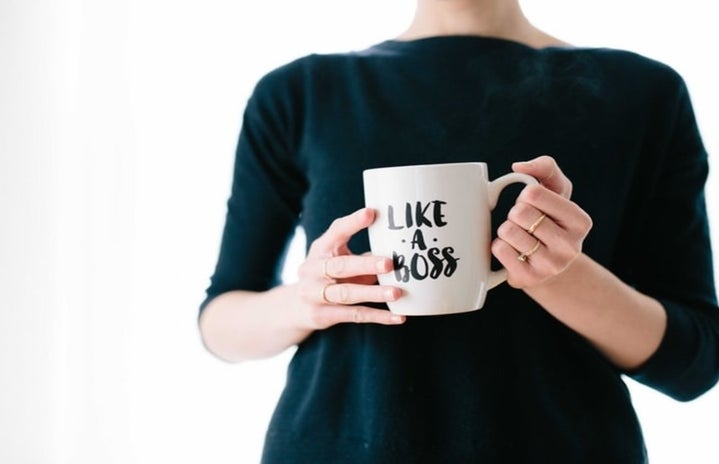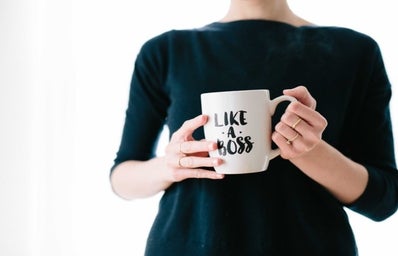#GirlBoss: a phrase that once was but no longer is.
The idea of what a girl boss is had been developing since (nearly) the start of the 20th century. It was discussed for decades and soon began appearing on screen in the late ’70s and early ’80s. It was not associated with the title “#GirlBoss,” until Nasty Gal founder, Sophia Amoruso, came out with her book with the same title. Soon after the “release” of this idea — this person — #GirlBoss was trending everywhere. Female-identifying millennials strived to be a girl boss, buying into the idea that doing so would be the only way to be accepted and thrive in the workplace. For a while, the idea made sense, but as time passed, people began to see the darker side of the movement — the side that wasn’t mentioned in the hashtag.
The idea of a girl boss, in the beginning, was a female-identifying person who “had it all,” and got it through her own hard work. That person didn’t take no for an answer; they rise in a male-dominated industry and look good doing it. On the outside, a #GirlBoss knew how to dress and put makeup on, AND they were a “Boss Babe” (similar to the idea of the girl boss, just another manner of saying it). One of the biggest reasons this movement spread as quickly as it did was that the “Girl Boss” was technology- and social media-savvy. At the time, Instagram and Snapchat were growing at an incredible rate. People were using the hashtag (or one of its many variations), including it in their captions, or even purchasing products that spread the same message. Simply put, the phrase was blowing up.
I kind of missed when this blew up initially in 2014. I was just ending elementary school, moving on to middle school, and was not at all thinking about joining the workforce (I don’t remember what was popular back then, but this whole thing was far from my mind). I do vaguely remember products being sold in department stores that said things like “She-E-O,” “Boss Babe,” and the classic “Girl Boss.” At the time, I didn’t really care for that “aesthetic” or that merchandise, so that whole era is hazy. A couple of years passed — I’m a freshman in high school now, and I find myself about to watch the TV show #GirlBoss, based on the book. At the time, I had no idea that they were related; I didn’t know the book even existed. Anyways, I start watching the show, and I think by episode 3 or 4 I got tired of the main character. She seemed like she was always complaining about her life, not doing much to change it, and making others feel bad. So I stopped watching and forgot about the idea once again.
Fast forward a few more years— maybe my junior year of high school— I was at a book sale, standing in front of the book that started it all #GirlBoss. It was less than a dollar, so… I got it. The book was about the author’s life, specifically how she started her own company and brand. But the way that it was written kind of made it seem like she was in the right place at the right time, AND that’s all it takes for someone else to follow in her footsteps. I read a little bit of it and already had my doubts. The story felt a little too perfect to be real life. I got the same feeling I got from the TV show, and then I made the connection. I feel like one of the takeaways I got from the book was that you have to be ruthless; you have to appear perfect because if there is one small problem, crack, or imperfection, you will lose it all. I didn’t really like the vibes, so I kind of disregarded the message.
It’s really what happened these past few weeks that made me want to research this topic and understand why it is toxic. I was on Google News and saw an article about how my generation, Gen Z, rejected the notion of a “Girl Boss”. I didn’t think much of it, and went about scrolling and finding other stories. A day or two later, the idea of us rejecting the term came up again but in my seminar class. My professor was a little confused about why we were rejecting it, but thankfully one of my classmates explained it. After their explanation, I was curious about the topic, so I went down a spiral and read many articles about “The Problem with #GirlBoss”.
One of the main ideas seen across all of the articles was that the version of feminism that #GirlBoss presented was inaccessible – only certain types of people could become one. This girl boss has privilege — even if they don’t acknowledge that they do — that many do not have access to. All the examples of a “Girl Boss” came from upper-middle-class backgrounds, just so happen to be attractive, and already had a brand — making it seem as though you need to already be at a specific position in life before you can even think about becoming a #GirlBoss.
So the #GirlBoss idea is seemingly inclusive, but in actuality, this is hardly the case.
I think my generation realized that the “Girl Boss” is trying to sell feminism rather than merely encouraging or even promoting it. “Girl Bosses” are selling the idea of self-confidence, but doing so by feeding on their followers’ insecurities. The #GirlBoss is only able to get ahead because she cares exclusively about moving higher up — not about the well-being of others. She is completely fine with stepping on her female-identifying workers for more fame and money. The current women’s movement is not about taking positions away from men or moving up the hierarchy for personal gain. It’s focused on providing change to our society, one that creates “A Just Society,” one that is actually inclusive.
As The Take summarizes it, “We need female bosses who don’t just rule, but who want to change the rules.”


